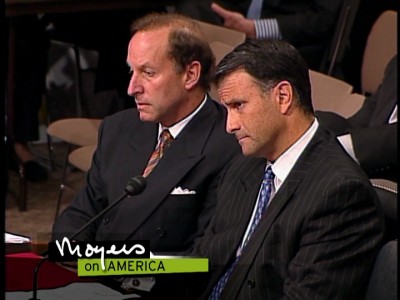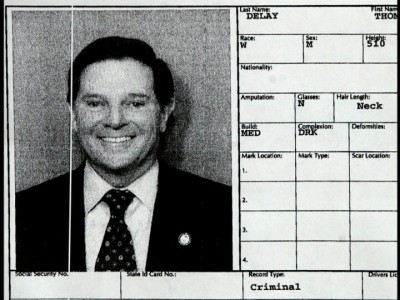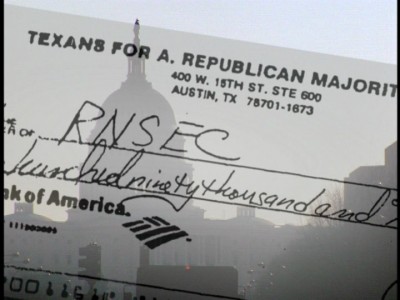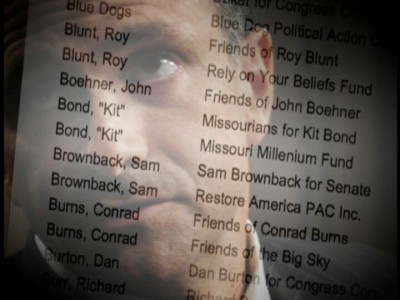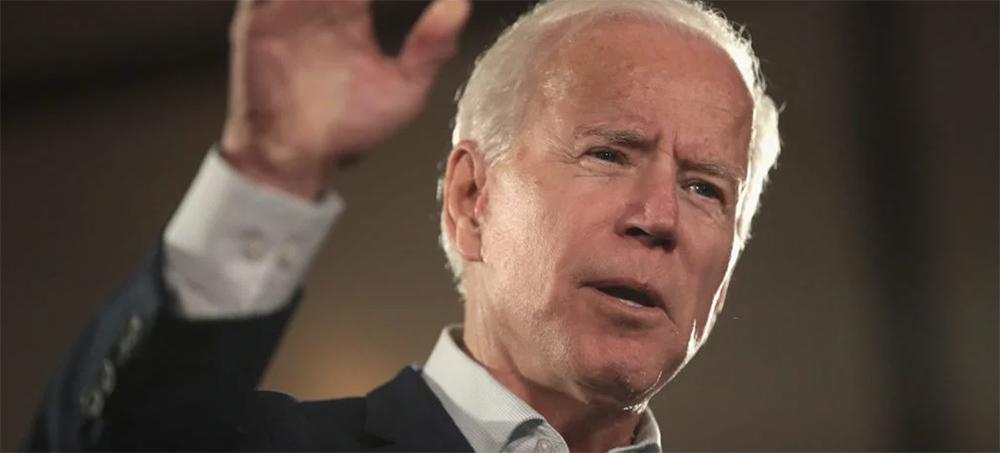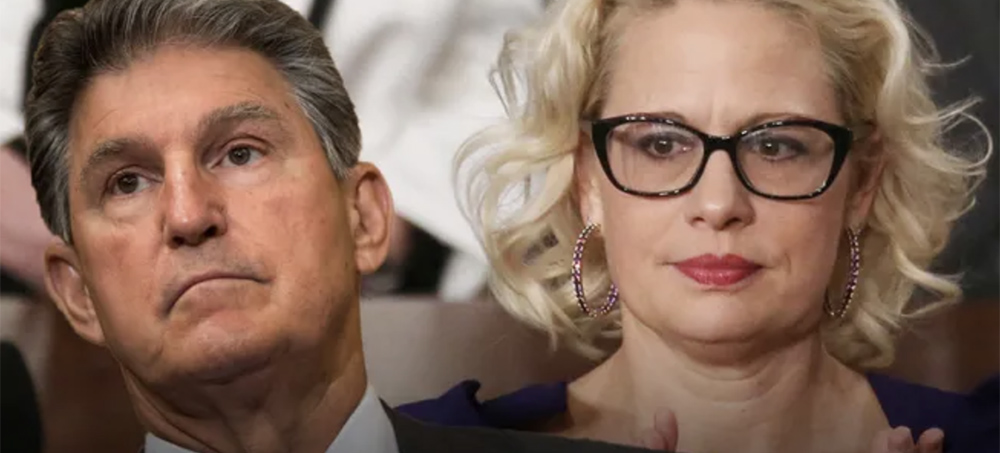Democrats are still divided over President Biden’s sweeping $3.5 trillion spending plan to expand the social safety net, increase taxes on the rich and corporations, improve worker rights and combat the climate crisis. Senate Democrats are hoping to use the budget reconciliation process to pass the bill, but this will only work if the entire Democratic caucus backs the deal, and conservative Democrats have balked at the price tag. Progressive Democrats in the House, meanwhile, say they won’t vote for a separate $1.2 trillion infrastructure bill passed by the Senate unless the reconciliation bill is part of the package. “We want to pass the full agenda that President Biden has set forth,” says Ro Khanna, a Democratic congressmember from California. “This is what President Biden campaigned on, and we need to deliver.” Khanna also discusses U.S. immigration policy, raising the refugee cap, investigating the full 20 years of the War in Afghanistan and bringing U.S. troops home from Iraq.
AMY GOODMAN: We begin today’s show looking at what Senator Bernie Sanders calls “the most consequential legislation since the 1930s and FDR and the New Deal.” We’re talking about President Biden’s sweeping three-and-a-half-trillion-dollar spending plan to expand the social safety net, increase taxes on the rich and corporations, improve worker rights and combat the climate emergency.
Senate Democrats are hoping to use the budget reconciliation process to pass the larger package, but this will only succeed if the entire Democratic caucus backs the deal. So far, two conservative Democratic senators — Kyrsten Sinema of Arizona and Joe Manchin of West Virginia — have balked at the three-and-a-half-trillion-dollar price tag.
This comes as House Democrats face a looming deadline on September 27. House Speaker Nancy Pelosi had agreed to hold a vote on the separate, bipartisan $1.2 trillion infrastructure bill by that date, but now some House Democrats say the deadline may be missed. A group of progressive Democrats are threatening to vote against the smaller, bipartisan infrastructure deal if it’s not voted on alongside the larger three-and-a-half-trillion-dollar plan.
Last week, President Biden urged Democrats to back his spending plan, outlining some of its key components.
PRESIDENT JOE BIDEN: Investments in roads, bridges, highways; clean water in every home and every school; universal broadband; quality, affordable places for families to live. And we can invest in our people, giving our families a little help with their toughest expenses, like daycare, child care, elder care, prescription drugs, healthcare, preparing our young people to compete against any country in the world with preschool and community college. We can confront this crisis of extreme weather and climate change, and not only protect our communities, but create new opportunities, new industries and new jobs. In short, this is an opportunity to be the nation we know we can be, a nation where all of us — all of us, not just those at the top — are getting a share of the benefits of a growing economy in the years ahead.
AMY GOODMAN: President Biden, speaking Thursday at the White House.
Meanwhile, Democrats were dealt a setback Sunday when the unelected Senate parliamentarian ruled Democrats could not include a pathway to citizenship to millions of people as part of the reconciliation bill.
We go now to Washington, D.C., where we’re joined by Ro Khanna, Democratic congressmember from California.
Welcome to Democracy Now! Congressmember Khanna, you are part of a group of progressive Democrats that say that you will vote against the bipartisan bill if it’s not voted on alongside this larger, sweeping, FDR-esque, three-and-a-half-trillion-dollar plan. Explain your position.
REP. RO KHANNA: Amy, our position has been consistent for months. We want to pass the full agenda that President Biden has set forth. Yes, we need investments in roads and bridges and highways and the traditional infrastructure, but we also need investments in modern infrastructure that takes into account the climate. You can’t just have traditional infrastructure without having a clean energy standard, without investing electric vehicles, without investing in renewable energy. And we need the human investments in child care, in the expansion of Medicare, in free community college. This is what President Biden campaigned on, and we need to deliver.
AMY GOODMAN: And so, how would this work? And talk about the timeline right now. And maybe what most people don’t realize, this three-and-a-half trillion dollars is not going to be spent this year.
REP. RO KHANNA: Thank you, Amy, for making that clarification. It is over 10 years. People don’t talk about the fact that over those same 10 years, we’re going to spend $7.5 trillion on defense. When they talk about defense, they use the one-year number, but when they’re talking about social investments, human investments, they use the 10-year number. So this is $350 billion over the year.
The other point that is worth making is that the progressives have been willing to have a conversation. We are willing to engage in a dialogue with the White House, with Senator Manchin, with Senator Sinema, of how we get this done. The question is: Are they going to engage in that dialogue? We still haven’t heard what Senator Manchin and Senator Sinema are for. They keep saying what they’re against. What we want to know is: What are they for?
AMY GOODMAN: So, on Sunday, you tweeted, “Can anyone explain to me why we are passively giving Elizabeth MacDonough who has not won a single vote more power than any sitting Senator or House member to kill the $15 wage and common sense immigration policy? Overrule her,” you said. Well, since most people don’t know who she is, explain who she is, what she did and what you think has to happen.
REP. RO KHANNA: I don’t have anything personal against Elizabeth MacDonough. I just don’t understand this idea that a Senate parliamentarian is going to decide whether this country — whether we can have a $15 minimum wage, whether we can have a path to citizenship for those who are undocumented. I mean, we fight elections over this. This is what congressional elections are over. This is what the presidential election is over. Madison, Jefferson, they didn’t put Senate parliamentarian in the Constitution. It’s a total artifice that is a creation of arcane Senate rules.
And the point is that the Senate, with a 51-vote majority, is not bound by the Senate parliamentarian’s advice on what can pass and what can’t pass as an exception to the filibuster. In the past, the Senate parliamentarian has been overruled many times by presidents and vice presidents. The vice president, of course, is the president of the Senate. And what I’ve said is that we should overrule her opinion on this. It’s just plain wrong. I mean, $15 minimum wage does have a budget impact. Making people citizens who pay taxes does have a budget impact. And it’s mind-boggling to me that this one person is going to decide the fate of millions of people.
AMY GOODMAN: So, what can you do?
REP. RO KHANNA: The administration can overrule the parliamentarian. I mean, it takes 51 senators to say we disagree with the parliamentarian’s ruling. We have those 51 senators, with our 50 Senate members plus Vice President Harris. And a number of us said that they should have overruled her months ago on the $15 wage. Now this has become a pattern of her obstructing the president’s agenda.
She’s making opinions. I mean, she’s opining that, well, someone may take away immigration status later on. First of all, she doesn’t understand constitutional law. You can’t just repeal something. It’s a violation of the due process. Second, it’s not her place to be having those political conversations. No one elected her. She has no legitimacy.
So, the president should make it clear, vice president should make it clear, that we will overrule her. Now, the question is, well, this will upset norms, this will upset decorum. I mean, what’s more important? Norms and decorum or the lives of millions of people who don’t have citizenship or the lives of millions of people who aren’t making a decent wage?
AMY GOODMAN: So, your message to Manchin and Sinema right now, and also the issue of who they’re beholden to — for example, the well-known ties of Senator Manchin to the oil, gas and coal industry — and how that can play into his opposing a three-and-a-half-trillion-dollar deal which is about the greening of America?
REP. RO KHANNA: You know, Amy, I have a decent relationship with Senator Manchin. I’ve never questioned his integrity. My point is, let’s get to the right policy. Let’s have a conversation. I mean, I understand that there are fossil fuel industry in his state. And so, if he has a view that we need to have more investment in his state in clean energy so that these jobs are first in West Virginia and he can go to his constituents and say, “This is not going to cost the economy in West Virginia; it’s actually going to add to it,” I’m open to having that conversation. Many progressives are open to having a conversation with him.
We don’t know exactly where he and Senator Sinema are coming from. For example, on voting rights, his plan, it’s not one I fully agree with, but it’s a good one, and the progressives can rally around his voting rights plan. I guess my question to the senator, about Manchin and Sinema, is: What is their plan? Where is their — what are they proposing? That, as an initial matter, is necessary for us to get to a yes. And we made that clear to both the White House and those senators, that they have to come up with a proposal.
AMY GOODMAN: He, Manchin, has said he has a concern about the money. Manchin has received more campaign donations from the oil, coal and gas industries than any other senator. Maybe that’s the money he’s concerned about?
REP. RO KHANNA: Well, Amy, look, I’m having a hearing, as the environment chair, where we’re going to get the fossil fuel companies in for the first time — Exxon, Chevron, BP, Shell. So, we’re certainly going to realize and find out what they’ve been doing to kill legislation, to have lobbying influence.
I will say this: I mean, West Virginia has a large fossil fuel industry. So, if there are individuals who are supporting him in those industries, that, to me, in and of itself, doesn’t — isn’t what is the decisive factor. What is the decisive factor is: What is he for? And if he comes onto the table and says, “Look, I want these things for West Virginia,” I think he’ll find a lot of people in the caucus are willing to do that. We want to have a dialogue with him. I personally have never questioned his integrity. What I want to do is: How do we get to a yes for the president’s agenda? And it’s in all of our interests as Democrats to do that.



